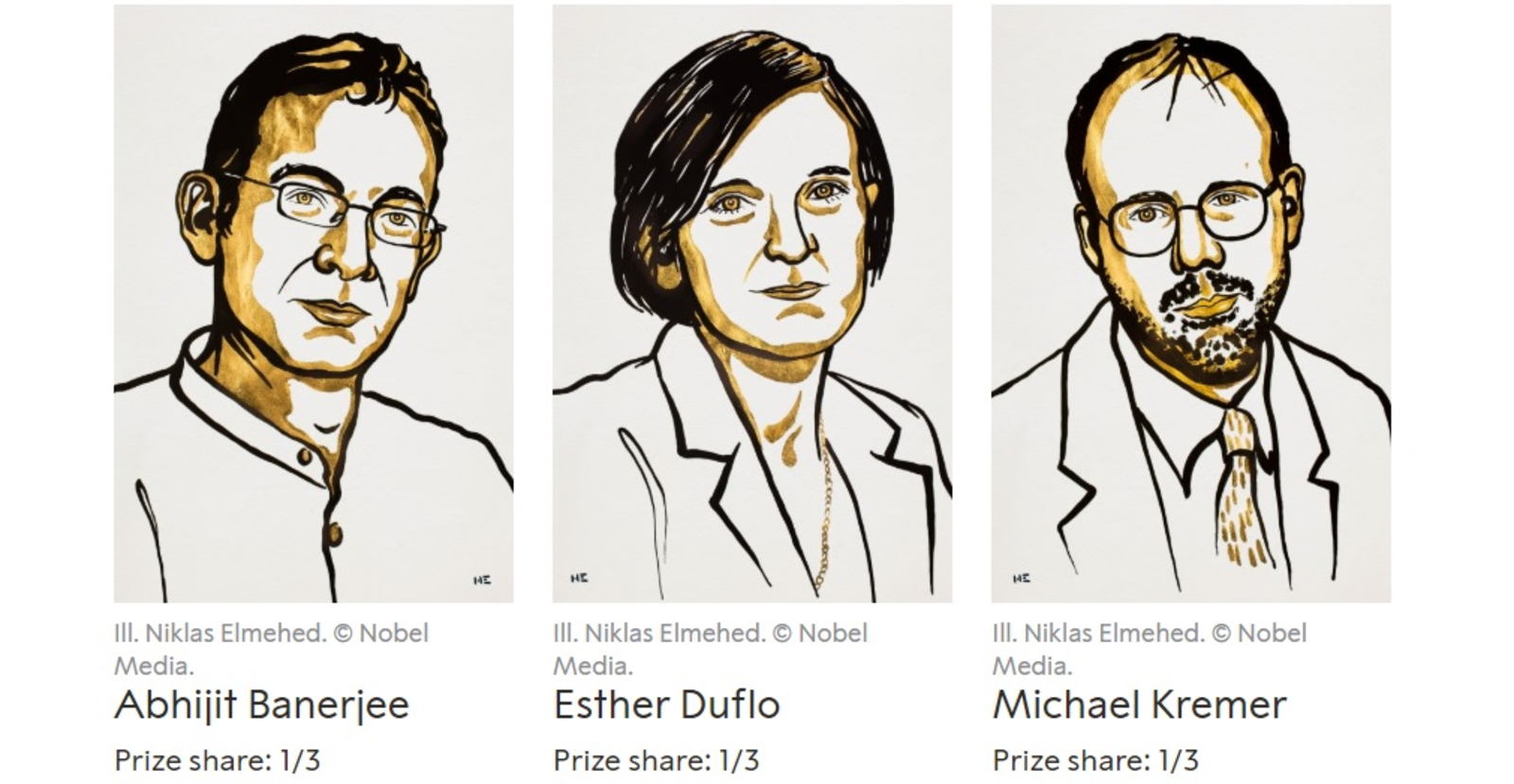Nobel Prize winners identify precise interventions to tackle poverty

Nobel Prize winners sit down to explain their groundbreaking poverty intervention research: Poverty is not the intractable problem it’s often made out to be, and can be addressed using practical and inexpensive steps, backed up by clear scientific evidence, say the winners of the 2019 Nobel Prize in economics in an interview with the Economist (listen, runtime: 14:15). Their experimental approach is particularly effective because it allows them to pinpoint where a set of commonly-referenced theories intersect with realities experienced on the ground, using research obtained directly through work with governments and citizens in developing countries. They can apply different variables related to a particular challenge to gain a richer understanding of its causes.
No one “silver bullet” can eliminate all the issues that keep people poor: One especially effective piece of research disproved a common hypothesis that immunization rates in India are low because of accessibility issues. The experiment showed that a supply intervention (providing an absolutely consistent service) boosted the rate of immunization to 12% from a base rate of 5%. But offering additional incentives to families — including bags of lentils and sets of plates to those who completed the immunization program — boosted the rate to 37%, and actually halved the cost of immunization. They argue that poverty is not a single, constant problem, but often an accumulation of different issues that feed on one another, and to tackle it you don’t need a silver bullet, but “a set of silver pellets that will shoot down all these different enemies.”